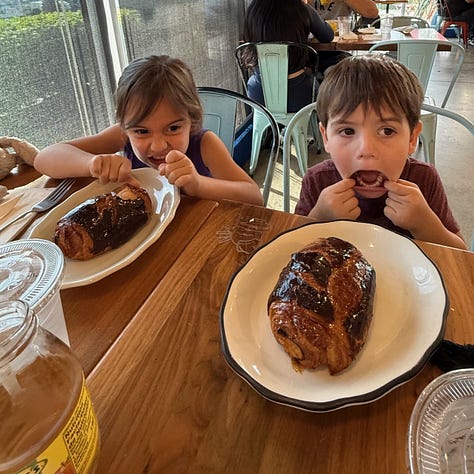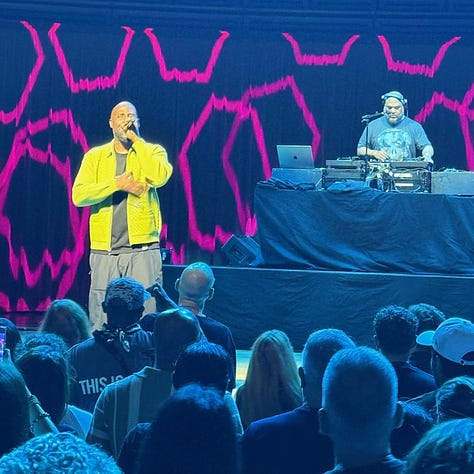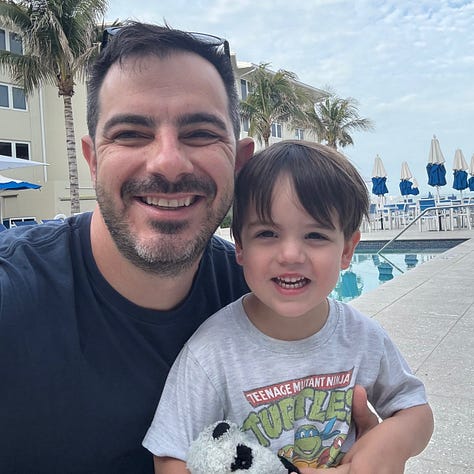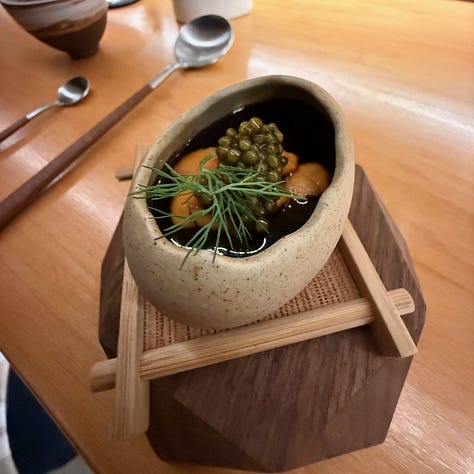How to Say Yes
By Learning When to Say No
I’ve never been great at saying no.
It’s not that I’m a pushover or that I can’t set boundaries. It’s more that I’ve always had this reflexive yes built into me—driven by FOMO, curiosity, a genuine desire to help, and sometimes just a reluctance to miss out. The truth is, I like doing things. I like people. And I like opportunities. But at some point, especially over the past few years, I realized that saying yes to everything was costing me something far more valuable: time, energy, clarity—and sometimes even progress on the goals I care most about.
So this isn’t about how to say no more. It’s about saying yes more intentionally. It’s about knowing the difference between a “fuck yes” and a maybe—you know, the kind of maybe that should actually be a no.






(The photos above are some recent things I said “Fuck Yes” to, including seeing De La Soul live with my wife, a trip to Costa Rica with some great friends, a spring break boys trip with my son, and a Houston hang with some of my favorite mentors)
The Involuntary No
There are seasons in life when “no” is automatic. When I was building my first business, time was tight. I didn’t have the space for long lunches, coffee meetings, or back-to-back networking events. I said yes to too many things in those early years—and it caught up with me. Late nights out, early mornings grinding—it wasn’t sustainable.
Then came kids. My daughter was born during the pandemic. And while that was a difficult time for many reasons, it also gave us this unexpected gift: total isolation. Just me, my wife, and our new baby. And in that silence, I learned how good it felt to say no to the outside world—because I was saying yes to something better. That experience shaped how I show up as a father and how I make decisions with my time.
The Voluntary No
As our lives got fuller and more active again, we made a conscious decision—especially after our son was born 2 years later—to hold onto that sense of presence. I started building a schedule that reflects the life I want: work hours between 10 and 5, early mornings with my thoughts, then starting the day with the kids, evenings for family time. No calls after 5, none. No breakfast meetings. No to anything that breaks that flow—unless it’s something really (really) special.
Saying no has also been a big part of my health goals. This year, I decided to lose weight and stop drinking (with rare exceptions while traveling). That means saying no to a lot of indulgent experiences—special meals, celebratory nights out, spontaneous social plans. And while I love those things, I’ve come to realize: if I say yes to everything that brings momentary joy, I might miss the longer-term win. And this year, that win matters more to me.
My Yes/No Rubric
These decisions don’t happen by gut alone. I use a loose rubric for yes/no calls—and while it’s personal, I think it can apply to almost anyone:
Is this aligned with my goals?
Annual, quarterly, life—it doesn’t matter. If it’s not in service of something I’ve already said matters, I pause. (see 2024 Annual Review for some goals)Does this bring me meaningful joy or connection?
I’ll make space for deep friendships, shared meals, real laughs. That’s a yes.Is this a once-in-a-lifetime opportunity?
Some things don’t come back around. If it’s rare and it matters, I’ll bend my schedule.How will I feel the next day?
Proud? Energized? Guilty? Regretful? That’s a quick gut check that helps me align.
Of course, there are always exceptions. Family emergencies. One-off asks from close friends. But the whole point of having a rubric is that you know when you’re making a conscious exception—and when you’re slipping back into saying yes by default.
No for Now vs. No Forever
As an investor in early-stage companies, I’ve had to sharpen this even more. I get a lot of opportunities across different industries and verticals, and it’s easy to get overwhelmed. So I rely on my thesis, my strategy, and—most importantly—my instinct about people.
If I sense a misalignment in values, especially around integrity or transparency, that’s usually a hard no forever. I don’t bounce back from character concerns.
On the other hand, a “no for now” is usually about timing or focus. Sometimes I really like the founder, but the idea’s not there. Or I’m overcommitted. That’s a relationship I stay in touch with—because who knows what comes next.
This distinction is powerful in life, not just business. It keeps your network alive and your priorities protected.
How to Actually Say No
Saying no doesn’t have to mean being an asshole. But it also doesn’t require a full apology.
Here’s how I usually do it:
Be brief and kind: “Thanks for thinking of me, but I can’t commit right now.”
Be honest, when helpful: “I’m prioritizing family time in the evenings these days.”
Delay your response if needed, but set an expectation: “Let me think about this and get back to you early next week.”
Sometimes the hardest part of saying no is the story we tell ourselves—that we’re missing out, letting someone down, or closing a door. But in my experience, people respect clarity more than a half-committed yes.
What I Say Yes To (Almost Always)
Quality time with my wife and kids.
Helping people—especially when I can make a big impact in a short time.
Unique experiences with people I love.
Work that aligns with who I am and how I want to show up.
Those all get an easy yes, because they’re rooted in my core values.
The Real Takeaway
It’s not about saying no more. It’s about saying yes more deliberately.
It’s about understanding that every yes has a cost—and every no creates space for something better. That “fuck yes or no” rule? It’s real. If something doesn’t light you up, serve your goals, or feed your soul, then maybe it’s just not a yes.
The older I get, the more I realize: clarity is everything. And the narrower my focus gets, the richer my life becomes.
IM



Great column. I’m considerably older than you but here’s my litmus test. I do everything I want to do and nothing I don’t want to do. This applies to all aspects of my life. It’s made me much happier.